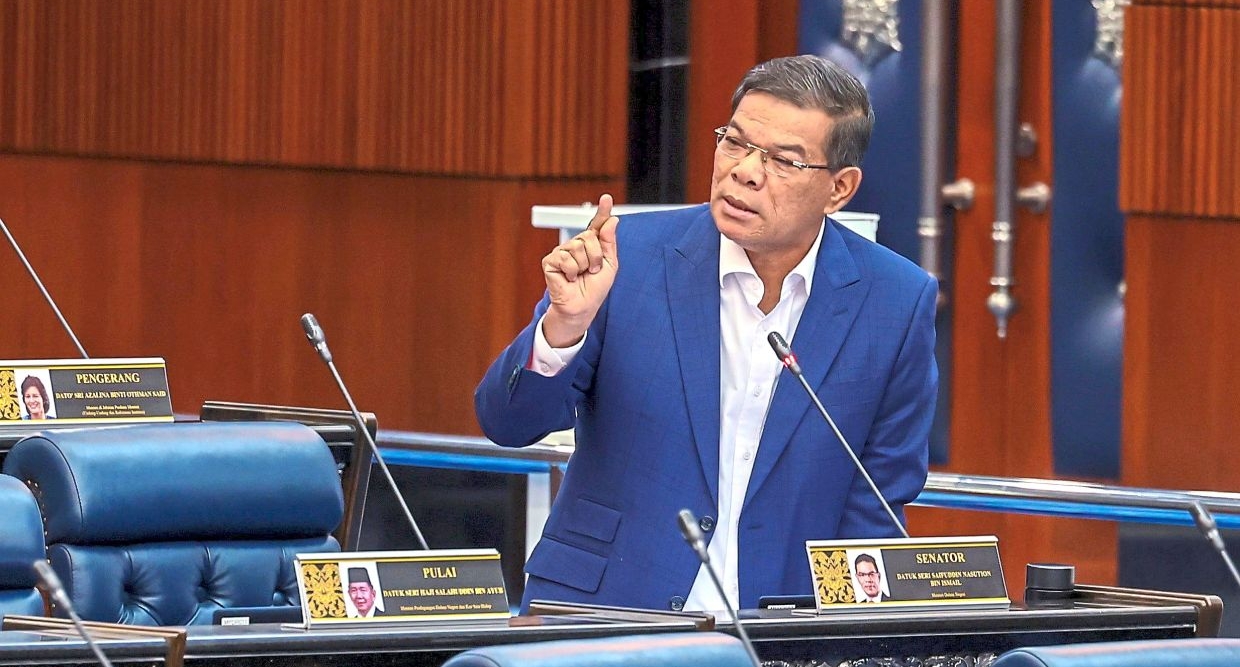Home Minister Datuk Seri Saifuddin Nasution Ismail recently declared that MM2H had brought in some RM1 billion in ‘net income’ since the restrictive new requirements were put into place. Here’s another take on that claim.
Various local news outlets have dutifully reported the new Minister of Home Affairs defending the more restrictive rules for the revised MM2H visa and implying the programme was still making a welcome contribution to Malaysia, just as good as it had before, an assertion with which we respectfully beg to differ.
The Minister’s comments were made during a question-and-answer session in the Malaysian Parliament. He made several claims which were reported somewhat inconsistently by different news outlets, but we think we have managed to extract the key facts and have reached a very different conclusion from the Minister. We think Malaysia has lost out quite badly from the changes.
I will not go into the detailed history of how the MM2H programme (along with Malaysia’s reputation) was badly damaged by the treatment of visa holders during the Covid pandemic and by the initial decision to change the rules for existing participants which seriously upset many visa holders. That decision was later reversed (mostly), but the damage was already done. Local MM2H agents who were marketing Malaysia and the visa programme were also seriously hurt, with quite a few agents going out of business and adding to the unemployed numbers during Covid.
A CLOSER LOOK AT THE NUMBERS
Let’s look a bit more in-depth at the recent statement and numbers. The Minister said 375 MM2H visas have been approved under the revised programme, since it was launched some 20 months ago. During its peak time in 2017 and 2018 the programme generated some 6,000 approvals a year so during a 20-month period, it would have theoretically approved over 9,000 applicants had the requirements remained the same.
It should be obvious that the spending contribution of those 9,000 people would have far exceeded that of the 375 approved under the new version of MM2H, even allowing for their higher average income. The main contribution under MM2H has always come from the participants’ annual spending and the purchase of capital items like homes and cars.
The fixed deposits that MM2H applicants place are not ‘income’ for Malaysia, but indeed funds remaining with the account holders. Since these accounts must be held at prescribed levels by the terms of the MM2H visa, the funds cannot be freely spent by their account holders – spending that would of course benefit the country. In fact, the banks must also pay interest on these fixed deposits, so to characterise them as ‘net income’ for Malaysia is misleading. (It is unclear whether the Home Minister actually said this, or if it was just written this way in the news coverage.)
The new programme often claims to attract ‘high-quality applicants,’ but we think the term ‘quality’ is very misleading, and it’s not necessarily accurate to universally equate ‘wealthy’ with ‘high quality.’ Some people under the old programme had income over RM40,000 a month, but they told us they would not be willing to put RM1 million on fixed deposit here since they considered it a bad investment – giving a low yield and being in a currency that had been depreciating in value for many years. There was no upside to the deposit for them, and they felt the money they brought into the country to live here should be considered good value by the government.
SOME FIRST-HAND INSIGHTS
Let me share our research among English-speaking MM2H visa holders who came from over 30 different countries. Their average monthly spend was a little over RM10,000 a month and about 60 percent of them purchased houses and even more acquired local cars. That was a valuable contribution to the country. They were also overwhelmingly positive about the programme and Malaysia. The country had effectively created several thousand unofficial ambassadors for Malaysia without even trying. Subsequent research after the changes were made showed a complete reversal of MM2Hers’ attitude towards Malaysia, and even the government admitted that many more people had chosen to cancel their visa and leave the country, than new people applying. Actions speak louder than words.
The Minister said there were more applications in the pipeline, but they can only be counted once actually approved, as a lot can happen between submission and the final stamping of the visa. However, a drop from over 9,000 approvals to just 375 over a similar period speaks for itself. Malaysia is losing out big time.
This is to say nothing of the many MM2Hers who have exited the programme since the changes were implemented. The Home Minister is looking only at the data on the positive side; if 375 new applications have been approved while 2,000 participants have left the programme, that can hardly be considered a net gain.
The Minister was also quoted as saying under the former programme some applicants were actually spies. We cannot see any way in which raising the income and fixed deposit requirements reduces the risk of bad people being approved. (In fact, it seems safe to say that plenty of bad people have a great deal of money.) Vetting applicants is a security function, not a financial one, so we cannot understand this comment. In recent years, the security checks built into the application process have been tightened and those checks exist regardless of the qualifying financial criteria. It depends on how well these are enforced as to whether undesirable elements are allowed into Malaysia. To the best of our knowledge, the security checks work quite well, but of course nothing is 100% foolproof. The raising of the income requirements simply meant that many retires attracted under the previous rules were no longer eligible. After all, not that many people enjoy a RM40,000 monthly income after retirement.
MALAYSIA’S INHERENT APPEAL
We have helped a large number of people apply over the years, and they are typically people who have worked overseas for multinationals and now wish to settle in a warm country with friendly locals, where their pension offers an enjoyable lifestyle and they can live out their retirement in peace. Malaysia offers a lot of positives, and quite a few of these expats had previously worked here and fell in love with the country, so did not want to leave. When the rules changed, some of them told us they thought it was very unfair that the country enthusiastically welcomed them when they worked here for multinationals, but now that they are older and no longer working, they were not welcome.
Several other countries have identified the benefits of attracting foreigners with reasonable incomes and offer attractive residency programmes with far less stringent conditions. Not only have people left Malaysia and gone to these countries, but many potential applicants have told us they chose other countries because they considered them to be more welcoming to foreigners. The well-respected annual index of ‘best places to retire’ published by International Living dropped Malaysia from the top of the list in Asia after the new rules were announced.
Many people contacting our help desk have expressed shock when advised about the new conditions for the visa surprised that Malaysia would not welcome them and their money. After all, a Malaysian citizen earning RM20,000 a month who owned their own house and had a million ringgit in savings would be considered well-off, and certainly an attractive potential consumer for most products and services. However, a foreigner with that income is no longer welcome here.
According to the last Home Minister, some Malaysians were concerned about large numbers of foreigners moving into the country, so he decided to cap the total number of approved applicants to one percent of the population. However, when people looked at the actual number of MM2H visa holders, even after the programme had been running for more than 15 years, they discovered that it was far less than one percent.
FINAL THOUGHTS
It is hard to see how approving some 6,000 people a year could be that disruptive, especially when the Malaysian population has been increasing by roughly 500,000 people a year for many years. In fact, we have received hardly any negative feedback from Malaysians about the programme. The Ministry of Tourism told us they saw visa holders as excellent ambassadors for the country and liked the fact their presence here meant many of their friends and relatives came to visit them.
At the end of the day, it is up to the Malaysian government if they want to attract foreigners to the country, but we continue to believe that the higher numbers under the old programme were much better for the economy and helped create a positive image of Malaysia to the rest of the world. The many people living here under the programme attract foreign direct investment as many corporations look at the lifestyle offered before setting up operations. Having thousands of people choosing to come and live here is excellent publicity for Malaysia, and it goes without saying that the opposite is much less positive.
As someone who loves Malaysia and has been promoting it for over 25 years, it is disappointing to have been witness to various decisions which have damaged the country’s international image and caused it to lose billions in foreign exchange. We continue to hope for a positive change to help Malaysia reclaim its deserved position as a top retirement destination.
"ExpatGo welcomes and encourages comments, input, and divergent opinions. However, we kindly request that you use suitable language in your comments, and refrain from any sort of personal attack, hate speech, or disparaging rhetoric. Comments not in line with this are subject to removal from the site. "



















